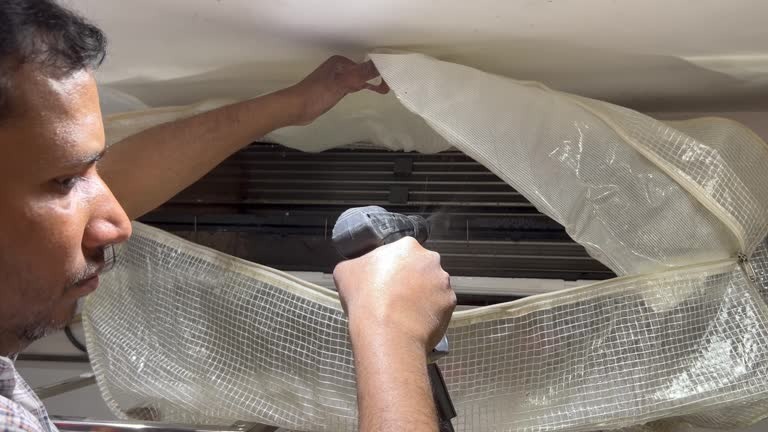
Preventive HVAC service is an essential aspect of maintaining a comfortable and energy-efficient living or working environment. Heating, ventilation, and air conditioning systems are integral to indoor comfort, ensuring that spaces remain warm in the winter, cool in the summer, and properly ventilated year-round. However, like any mechanical system, HVAC units require regular maintenance to function at their best. Preventive service not only extends the life of your equipment but also ensures consistent performance while reducing long-term costs.
One of the primary benefits of preventive HVAC service is improved energy efficiency. Over time, dust and debris can accumulate in filters, ducts, and other components of your system. This buildup forces your unit to work harder than necessary to maintain desired temperatures or airflow levels. Regular cleaning and tune-ups ensure that these blockages are addressed promptly, allowing your system to operate at peak efficiency. An efficient HVAC system consumes less energy, which translates into lower utility bills for homeowners or businesses.
Another critical advantage is enhanced reliability and reduced risk of breakdowns. Few things are more inconvenient than having your air conditioner fail during a heatwave or discovering that your furnace won’t turn on during freezing temperatures. Preventive maintenance helps identify potential issues before visit our page they escalate into costly repairs or complete system failures. Technicians can spot worn-out parts, refrigerant leaks, electrical problems, or other signs of wear during routine inspections—allowing you to address them proactively rather than reactively.
Preventive care also contributes significantly to indoor air quality (IAQ). A neglected HVAC system can become a breeding ground for mold spores, bacteria, allergens such as pollen or pet dander—and even harmful gases like carbon monoxide if combustion appliances aren’t functioning correctly. Routine servicing includes cleaning coils and filters as well as inspecting ductwork for leaks or contamination—all crucial steps toward maintaining healthy IAQ for occupants.
Finally, investing in preventive maintenance extends the lifespan of your HVAC equipment by reducing unnecessary strain on its components over time. Replacing an entire heating or cooling system can be expensive; regular upkeep delays this need by ensuring each part operates smoothly for as long as possible.
In conclusion—preventive HVAC service isn’t just about avoiding inconvenience; it’s about fostering long-term comfort while saving money on utilities and repairs. By scheduling routine checkups with qualified professionals today—you’ll enjoy peace-of-mind tomorrow knowing you’re prepared no matter what Mother Nature throws your way!






